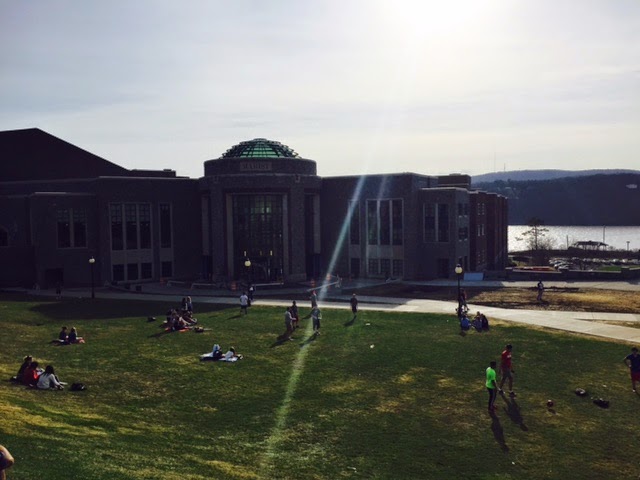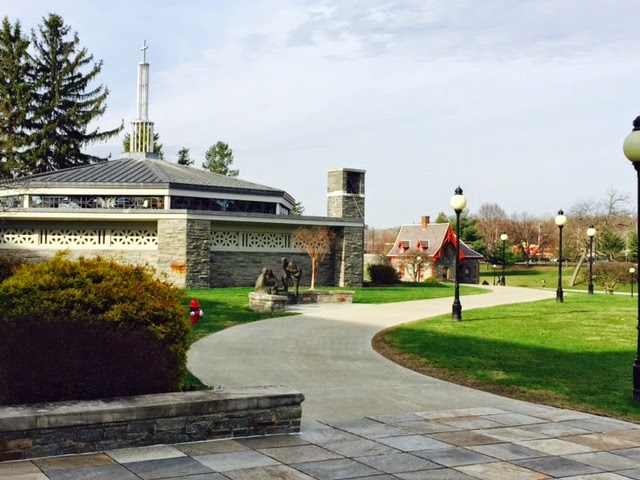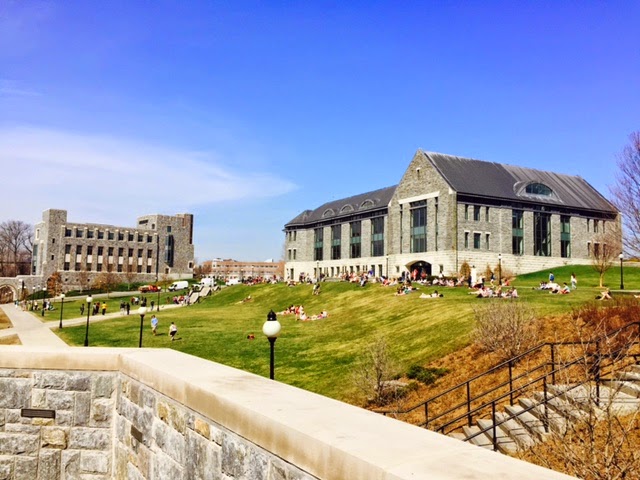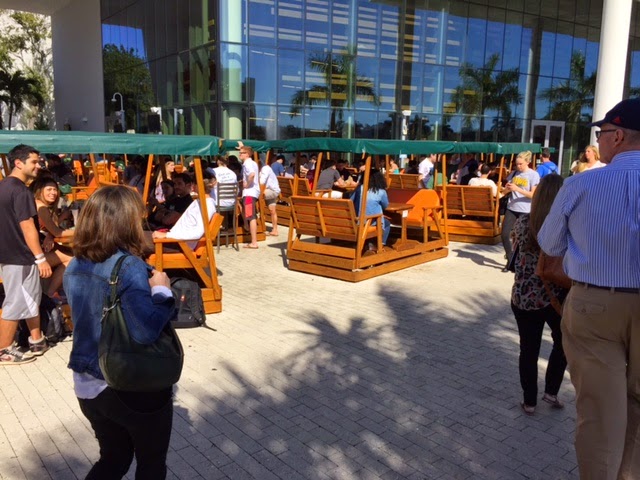Last week, I visited 10 colleges and universities in Connecticut and New York. Over the next two weeks, I will discuss my thoughts on these schools, share valuable information, and post a few pictures from each school. The first school I want to share with you is Marist College, located in Poughkeepsie, New York. Located only 2 hours north of New York City, it is situated on a beautiful 200 acre campus on the banks of the Hudson River. As soon as you pull off the main road onto their campus, you are struck by the beauty of its surroundings. Lately, Marist has put a lot of time and money into their campus and buildings, and it shows. Most of the buildings are a similar color of gray stone, all of the Division 1 sports fields are located throughout the campus, and at the center of the campus is a gorgeous lawn facing the Hudson River.
General Information
Marist College has just under 4,800 students, and boasts a 16:1 student to faculty ratio, allowing for a ton of personal attention between professors and students. Today, Marist is an independent private school, but it does have a Catholic background, as it was founded by the Marist Brothers. Their retention rate from freshmen to sophomore year is a superb 93%, and the total cost of attendance (tuition, room and board, fees, etc.) is $47,000 - reasonable compared to many other private schools in the country.
Academic Information
- Marist has 6 academic schools, housing 35 Bachelor's programs and 12 master's Programs.
- There are no lecture halls on campus and the biggest class is only 35 students.
- The School of Communication and the Arts has unique internship opportunities, such as a Marist in Manhattan Program and Art Internships in Florence. They have very close connections with NBC, Guggenheim, MSG, New Line Cinema, and ESPN. They also have a very popular fashion program and often participate in fashion week in NYC.
- The School of Computer Science and Mathematics is very demanding and their most competitive program on campus. Marist has a very close relationship with IBM, as they have given over $95 million in technology to Marist. Close to 95% of information and technology and computer science majors secure jobs before graduation at companies such as IBM, USAA, UBS, and Goldman Sachs.
- The Marist School of Management is AACSB accredited and offers degrees in areas such as economics, accounting, and finance management. There is a full, live trading room on campus, and they have many internships with Fortune 100 and 500 companies.
- The School of Liberal Arts offers majors in areas such as English, History, and Political Science. They also have a pre-law advisory program with a 100% acceptance rate to law schools. Marist is also 1 of 6 schools in the country that works directly and grants internships with presidential libraries (FDR Library and Museum, for example).
- The School of Science has many common Science majors, and has medical track programs including pre-dental, pre-medicine, pre-veterinary, and an athletic training program. The School of Science also has a great medical technology program that has a 100% job placement rate by graduation since 1982.
- The School of Social and Behavioral Sciences has majors in education, psychology, social work, criminal justice, and more. All students in this school are required to do an internship by the time they graduate. They are also connected with the United Nations, NYPD, FBI, Homeland Security, and the CIA.
- Finally, some students have the option of spending their freshmen year at Marist in Florence, Italy - a unique opportunity calld the Freshmen Florence Experience.
Admissions Information
- Marists' middle 50% accepted scores for the SAT is 1600-1840 and their average GPA is about a 3.5. The acceptance rate is around 32%.
- When reviewing an applicant, strength of program (academic rigor) is very important, as are the letters of recommendation.
- Marist is a test-optional school, although 77% of students do submit scores.
- Demonstrated interest in attending is very important to Marist Admissions, as is the 'Why Marist" supplement on the Common Application.
- They are in the process of building a brand new science building, potentially relieving the acceptance rate a bit for students interested in pursuing a science-related degree.
Personal Feedback and Pictures
I have always known a good amount about Marist, but I was honestly blown away when visiting the school for the first time in official college counselor capacity. This school has a little bit of everything and I think it is a perfect fit for many students. The location is ideal, only being 2 hours from the city, but located in a stunning part of New York State. It is clear that Administration has the students' best interests in mind, and that they are committed to ensuring students have a great overall experience while at school in searching for a career post-graduation. This is truly a school I believe most students should consider for its location, scenery, academics, career development, and overall community.
Joseph D. Korfmacher








